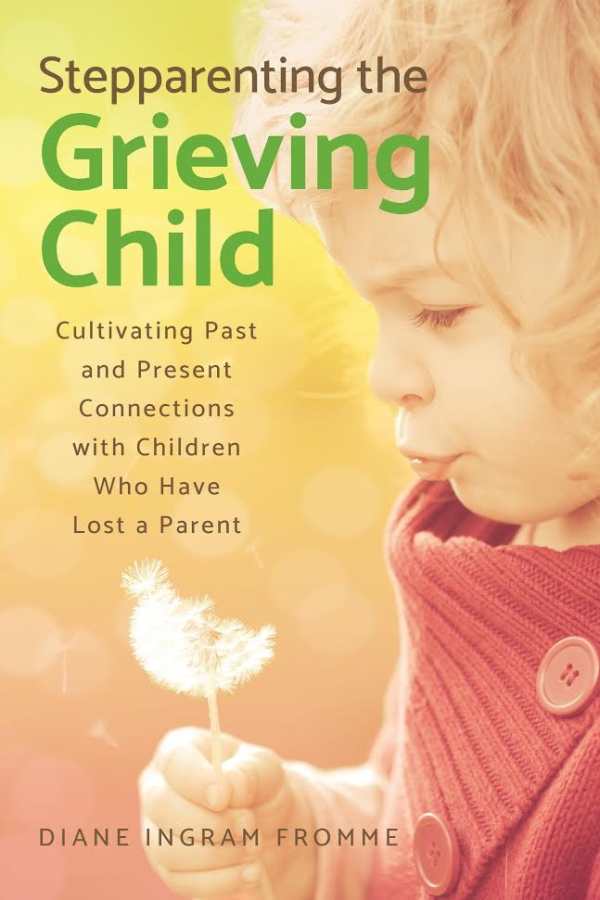Stepparenting the Grieving Child
Cultivating Past and Present Connections with Children Who Have Lost a Parent
Drawing from the author’s personal experiences, this is an excellent, essential guide for stepparents of grieving children.
Diane Ingram Fromme’s Stepparenting the Grieving Child offers helpful guidance to stepparents, guardians, and professionals who work with children who are mourning the loss of a parent.
Fairy tales like Cinderella and Snow White paint stepparents—especially stepmothers—as harridans out to get rid of their stepchildren. Perhaps, Fromme muses, some of this is based on old-fashioned, rigid behaviors. Stepparents, not having parenting books to inform them that building trust and forming attachments could take years, turned to harsh disciplinary tactics.
Fromme did not have a guide, either, when she became the stepmother to two young children whose mother had died of cancer. She found books for new stepparents and books for people grieving the loss of a loved one, but not one self-help book focused on being the stepparent of children whose parent had died.
With some engaging moments that read like a memoir, this book is primarily an accessible parenting guide for navigating a new, special family dynamic. Using interviews with other stepfamilies in which a natural parent had died as well as documented research, the book offers advice on everything from deciding when it’s the right time to remarry to understanding the cycles of grief.
Fromme views her own story as a cautionary tale: were she to do it again, she might have waited a while longer to marry her widower husband, in consideration of his and his children’s grieving. Instead, she “bought into a common myth—one of the many that new stepparents encounter,” that given time, the family would “start to feel loving and cohesive.”
Instead of bonding instantly, though, or viewing her as a mother figure, Fromme’s stepchildren sometimes seemed emotionally removed from her, and looked to their father as their main caregiver. Their relationship, now more than twenty years in, is still a work in progress with emotional ups and downs.
Fromme uses fieldwork to support her declaration that stepparent-stepchild relationship fluctuations are perfectly normal and acceptable. She uses examples that will bring comfort to stepparents who might be at a loss for the “right” way to treat their grieving stepchildren.
Chapters begin with pivotal moments from Fromme’s stepparenting journey that serve as introductions to specific topics—from stepparenting mindsets, to dealing with feelings of jealousy or rejection, to honoring deceased parents and acknowledging them as part of the family. Each chapter ends with questions to consider and listings of the main topics covered. At the end of the book is a resource guide that includes books, websites, and organizations for grief, suicide prevention, and the National Stepfamily Resource Center.
Written with clarity and in an agreeable voice, Stepparenting the Grieving Child is an essential guide full of excellent parenting strategies for stepparents, parents, and caregivers.
Reviewed by
Olivia Boler
Disclosure: This article is not an endorsement, but a review. The publisher of this book provided free copies of the book and paid a small fee to have their book reviewed by a professional reviewer. Foreword Reviews and Clarion Reviews make no guarantee that the publisher will receive a positive review. Foreword Magazine, Inc. is disclosing this in accordance with the Federal Trade Commission’s 16 CFR, Part 255.

